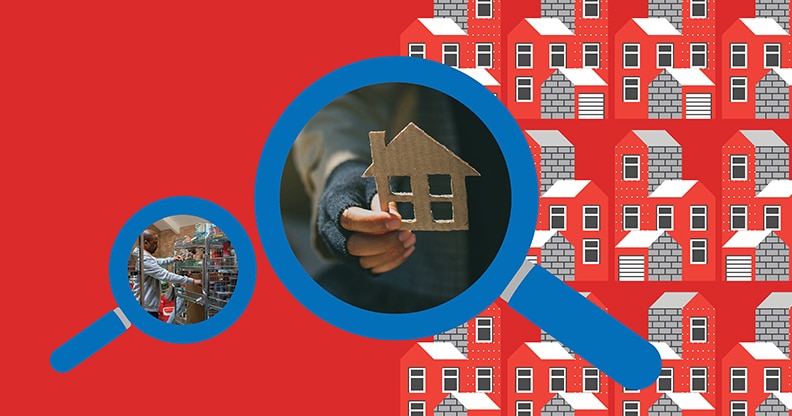Housing crisis: Renters in a worse situation, but civil society is taking action toward solutions
Montreal, June 11, 2024 – With just a few weeks to go before July 1, renters are continuing to face a difficult housing situation that is particularly affecting people who live on a low income. This is the finding from the latest data of Centraide of Greater Montreal’s most recent residual income measure (in French only).
This annual indicator combines several data points to track how people’s incomes can cover their living expenses.and determine how much is missing from their budgets to cover the essentials. This year, the minimum annual income that Greater Montreal renters need in order to meet their basic needs (for housing, food, clothing and transportation) is $31,000. According to the residual income measure, approximately 310,000 households—an estimated 18,000 more than last year—do not make enough to pay for their basic needs.
Centraide of Greater Montreal created the residual income measure in May 2023 with McKinsey & Company. This firm provided pro bono services to establish indicators to track changes in Greater Montreal’s housing situation for Together for Housing, an event that brought together stakeholders from the general public as well as the three levels of government. Since then, Centraide has continued to work with a broad variety of partners to identify solutions, and often innovative ones, that have emerged from civil society.
“High housing costs and the current shortage have increased people’s needs and in turn put pressure on the community sector,” said Claude Pinard, President and Executive Director of Centraide of Greater Montreal. “We have increased our financial support for housing committees to help thousands of tenants who are dealing with housing problems, which have a domino effect on other social issues, such as mental health, child development, domestic violence, and homelessness. It is imperative that we keep pooling our solutions in order to tackle this human crisis.”
Civil society takes action
Key stakeholders from the public, private and community sectors, as well as regular citizens, are mobilizing to find solutions to combat the housing crisis. Below are highlights of initiatives to date:
- Centraide of Greater Montreal launched a working group in 2022 to start discussions on housing issues. The Foundation of Greater Montreal and the Institut du Québec then published the Vital Signs on Housing in collaboration with Centraide. This report gave an overview of the housing situation and its impacts, particularly for the most disadvantaged households.
- Centraide sought expertise from stakeholders in the private, community, social economy, and municipal service sectors for the Groupe d’accélération pour l’optimisation du projet de l’hippodrome (GALOPH). The goal is to transform this large plot of land into a pleasant, inclusive neighbourhood that thousands of families can call home. Thanks to an investment from the City of Montreal and the governments of Quebec and Canada, GALOPH is continuing to work on this project, which includes creating over 10,000 housing units that are protected from real estate speculation.
- Another development is the Plancher Fund, which is steered by the Community Housing Transformation Centre. This fund aims to pool the assets of community housing owners to build new housing units.
- Centraide of Greater Montreal is also selling its parking lot to convert this urban heat island into housing. The land will be acquired by UTILE, which has shown leadership in the development of student housing and the fight against real estate speculation.
- A coalition of 21 organizations from the construction, real estate, community, and municipal sectors has been created and has voiced its support for a government action plan to tackle the housing crisis.
- After reviewing the systems to fund social housing in various countries, the Fédération des OSBL d’habitation de Montréal held study days at the end of May to devise concrete housing proposals for Quebec.
About Centraide of Greater Montreal
A true agent of change, Centraide of Greater Montreal is a public foundation whose mission is to bring people together and take action for an inclusive and poverty-free Greater Montreal. To achieve this goal, it supports a network of 375 community agencies and projects in Laval, in Montreal and on the South Shore that improve the living conditions of vulnerable people. Centraide works with the Greater Montreal population and with communities, businesses, institutions and philanthropic organizations. Its history dates back 50 years, when five charities merged into one entity. In 2023, Centraide invested $61.8 million in the community, which represents over 86% of the money raised. Every year, nearly 800,000 people benefit from the help of the agencies that it supports.



